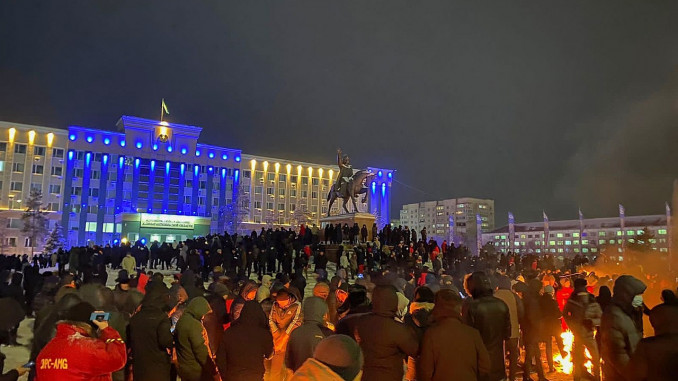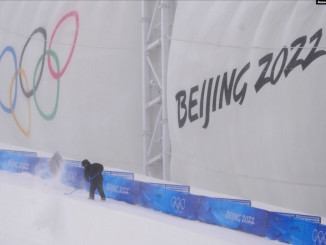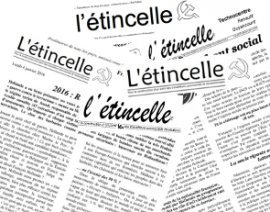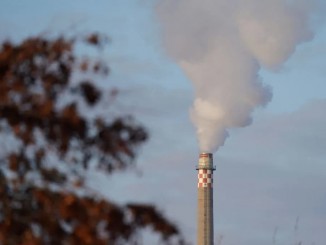
Since early January, the former Russian Soviet territory of Kazakhstan has been rocked by a massive popular revolt. The Kazakh dictator, Kassym-Jomar Tokayev, was so terrified by the population that he called on his ally, Russian president Vladimir Putin, for help. Roughly 3,000 Russian soldiers and armored vehicles rushed to invade the county. What is going on in this former Soviet Republic?
Kazakhstan is a huge country, though it has a small population. There are 19 million people living within its borders. The country is located near Central Asia and China, and most importantly it shares a border with Russia. Russia and Kazakhstan share 7,000 kilometers of border. Russia’s proximity is not only geographical. Russia’s politics have a huge impact on Kazakhstan, and Kazakhstan’s politics have a huge impact on Russia. They are both ruled by dictators who support rich capitalists, both Russian and European or American. No wonder Russia’s ruler, Vladimir Putin, is deeply concerned by the revolt from below in Kazakhstan. His nightmare of a similar revolt in Russia could become a reality very easily if the Russian population decided to move!
The current protests in Kazakhstan were the result of an increase in the price of gas widely used for vehicles. This year, the price of gas doubled almost overnight. The protest against this price increase started in the west of the country, on the shores of the Caspian Sea. It was an extremely wide-spread movement that quickly turned into a strike against the price of fuel and food products. It was a strike of the entire population – a mobilization of everyone against the conditions imposed by both government and companies. In a situation of deep poverty and social inequality, where the pandemic weighs heavily on everyone, these workers demanded that the bosses double their salaries and lower the retirement age. The authorities responded with extreme brutality. Tanks were mobilized to stop the protesters.
The striking workers and their allies reacted by setting official buildings on fire and stood their ground. The President responded by announcing a freeze on gas prices and the resignation of the government. He was trying to save himself by blaming the people who worked for him – a classic maneuver. However, this had no effect and the protest continued. On January 7, the Kazakh president told the cops and the military to “shoot to kill,” portraying the rebels as terrorists.
The revolt in Kazakhstan is important because it shows that the former Soviet republics do not have to serve Russian interests under the pressure of Putin and his rich friends. Putin is terrified of a similar revolt on his turf.
Kazakhstan is wealthy in oil and metals. In the first half of the 1990s, the country was opened up to investment by Western companies after the collapse of the Soviet Union. Capitalists in Russia and in the West want it for their own purposes.
The U.S. and the European countries have expressed their “disappointment” with the repression in Kazakhstan. They say they are speaking in the name of democracy, as always. But this is a ridiculous lie! The U.S. and the European states have had good relations with the Kazakh regime for several decades. If anything, they are throwing the Kazakh president under the bus to save their own reputations.
All our solidarity goes to the population of Kazakhstan, against the savagery of the Kazakh state and the Russian military. At the same time, we condemn the exploitation by the U.S. and Europe of the material and human wealth of the country. With murderers and exploiters on all sides, the Kazakh population can only rely on its own strength and the solidarity of the poor and working classes of the world to achieve its goal of liberation. Their struggle is a part of our own, for collective liberation against all exploitation and oppression. We stand in solidarity with the uprising of the people of Kazakhstan, who demand two simple but immensely important things:
- The immediate release of all imprisoned protesters and political activists.
- A halt to the military intervention by Russian forces.




